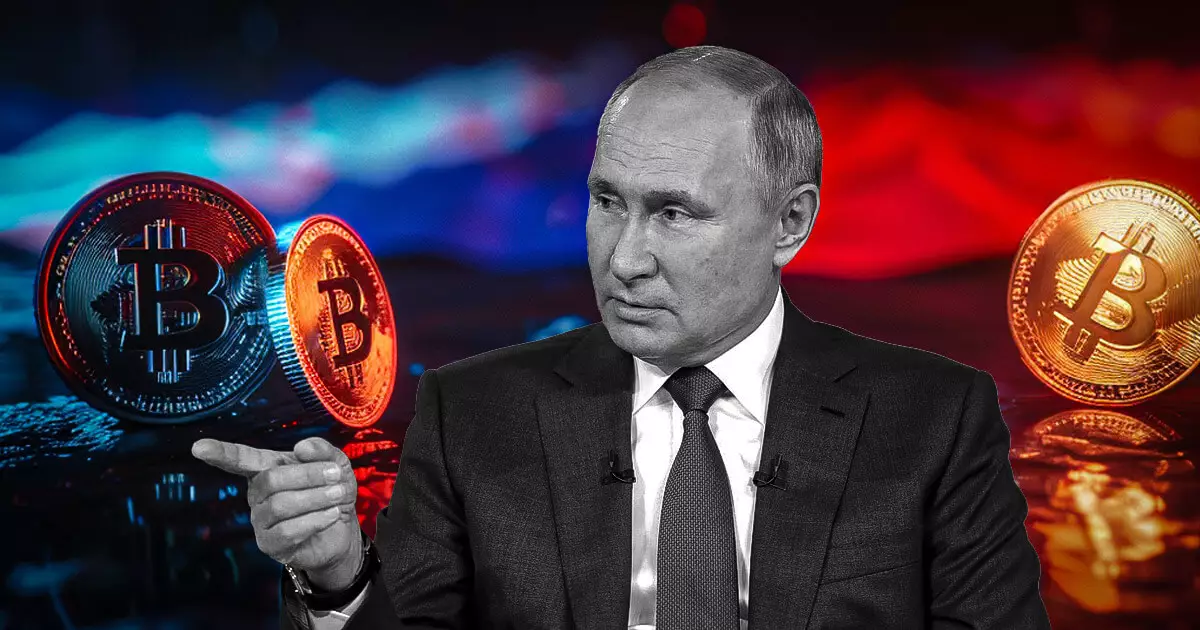In an impactful address at a recent Investment Forum in Moscow, Russian President Vladimir Putin articulated a strong endorsement for Bitcoin (BTC) and other digital currencies, asserting that their evolution is an irreversible phenomenon. He framed these virtual currencies as vital instruments in addressing financial inefficiencies that plague traditional systems, positing them as pivotal to economic stability and independence from U.S. dollar dominance. His remarks signal a strategic pivot, emphasizing the potential of cryptocurrencies as a global reserve asset, thereby challenging the long-standing financial hegemony of the dollar.
Putin’s commentary cannot be divorced from the geopolitical landscape shaped by the Ukraine conflict, which has seen Russia’s foreign reserves significantly impacted by the freezing of approximately $300 billion by Western nations. This occurrence has catalyzed a broader reconsideration among various countries regarding their monetary strategies, pushing them toward decentralized alternatives that are insulated from geopolitical manipulation. He stressed that the imposition of such sanctions has necessitated a rethinking of financial resilience, steering many nations toward mechanisms like Bitcoin that offer enhanced autonomy.
Underpinning this newfound embrace of digital currencies is a progressive legislative framework in Russia that officially classifies cryptocurrencies as property, a significant step toward their wider acceptance. This law not only provides essential tax relief for digital transactions but also exempts crypto mining and sales from value-added tax (VAT). Such regulatory measures reflect Russia’s commitment to fostering an innovative financial environment, demonstrating a recognition of the practicality and necessity of digitization within its economic infrastructure. The legal acknowledgment of cryptocurrencies illustrates a deliberate strategy aimed at cushioning Russia from external financial shocks and exploring new avenues for growth.
The role of cryptocurrencies has become especially pronounced during the ongoing Ukraine crisis, functioning as a conduit for financial transactions that are often hampered by traditional banking systems under sanctions. Both sides of the conflict are leveraging digital currencies to circumvent economic restrictions, underscoring their growing importance in modern warfare and economic resilience. Putin’s statements have thus framed Bitcoin not just as an investment vehicle, but as a crucial asset in the fight against economic isolation.
Furthermore, recent exchanges during BRICS summits have showcased the potential of digital currencies to revolutionize cross-border payments and challenge the prevailing dominance held by conventional financial institutions. Amidst evolving global dynamics, Putin’s advocacy for the integration of digital currencies reflects an understanding that embracing technological advancement is essential in reshaping the financial architecture on a global scale.
In stark contrast to U.S. initiatives, such as the proposed establishment of a national Bitcoin reserve, Russia’s bold stance aligns with a broader desire for a decentralized financial future. As nations worldwide reconsider their financial strategies, it is clear that cryptocurrencies are not merely a trend but an essential tool that could redefine international economic relationships. The dialogue surrounding digital currencies is emblematic of the shifting sands in global finance, suggesting that cryptocurrencies may soon play an influential role in the future economic landscape.


Leave a Reply